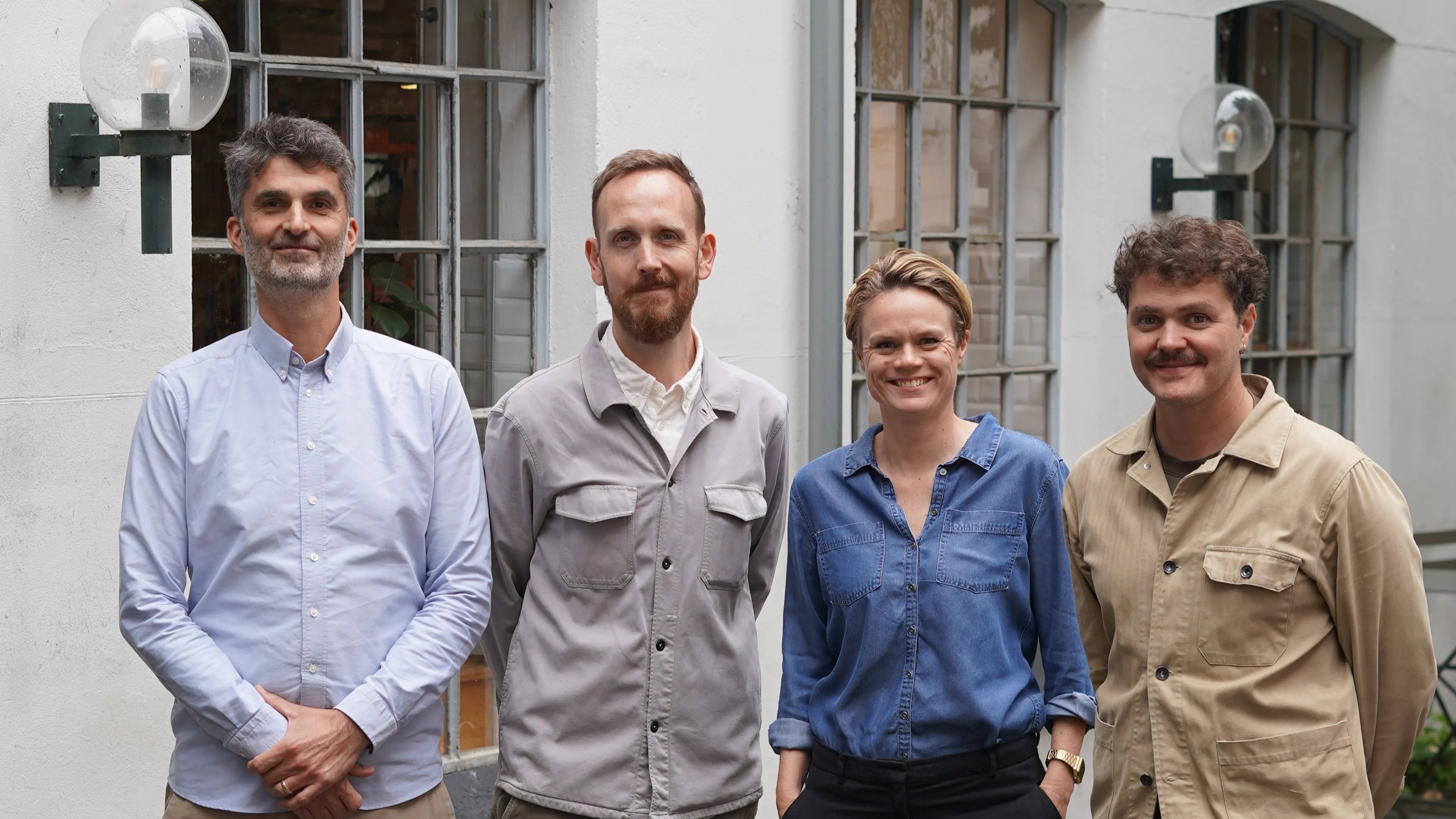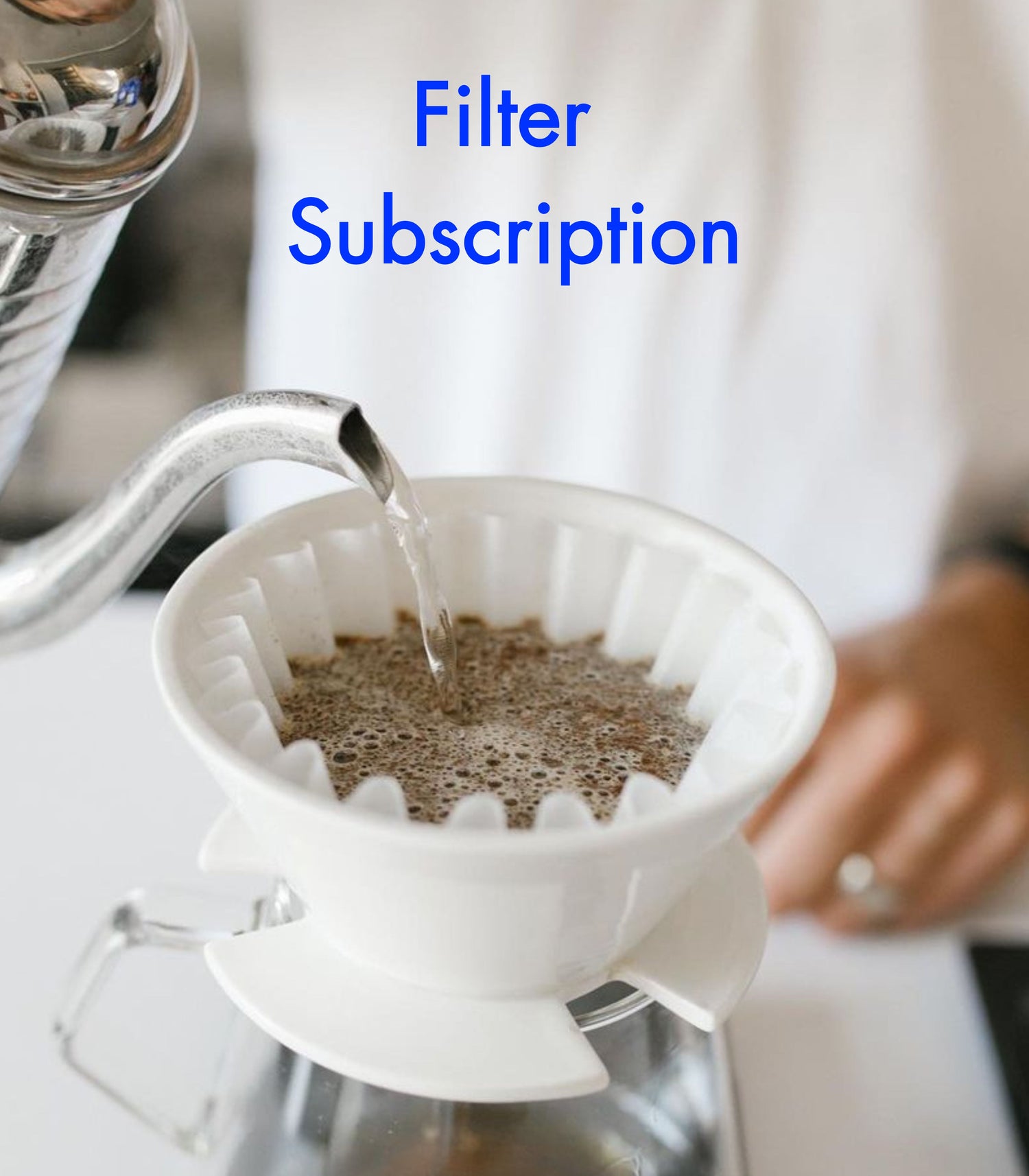This month, we’re honoured to feature Copenhagen’s Coffee Collective – true pioneers who have helped shape modern specialty coffee while staying rooted in community, transparency, and shared value. Their story is one of collaboration, long-term relationships and constant care for quality, people, and planet.

As always, thank you for being part of the Bean Bros subscription family. Your continued support makes it possible for us to share coffees and stories from roasters like Coffee Collective — and we’re genuinely excited for you to experience this one.
The name “Collective” signals an emphasis on collaboration: producers, roasters and baristas. How has that notion of “collective” evolved over time at Coffee Collective?
It’s been there since day one. It’s not just a word for us, it’s how we work. The idea was to bring more visibility and awareness to the people behind the coffee and build a stronger connection between our community here in Copenhagen and the people behind their daily cup of coffee.
It is something that we are incredibly proud of and humbled by.
That idea has continued to evolve. Over the past few years, we’ve been able to get even closer to producers, building new one-to-one relationships with farmers in Ethiopia and Peru especially, and you can see these relationships reflected in the quality of coffees we now have the privilege to share.
The collective also includes everyone who experiences our coffees, our wholesale partners and their guests across the world. Many of them we’ll never meet, but they’re still part of it. A huge unsung part of it to be honest.
Looking back, what achievement or moment makes the team the most proud?
We’re pretty proud of the forest we’re growing here in Denmark. Once fully grown, it will capture four to five times the CO₂ we currently emit.
Personally, I’m most proud of the moments when we have agreed on a price for the coffee, receive and taste the coffee months later, realise it’s better than expected, and decide to send more money back to the producer. Those moments are very special to me personally, and I can see are also very special to the producers we are working with.
As a pioneer in the Scandinavian specialty-coffee scene where do you see the next 6 to 12 months for Coffee Collective?
We have some exciting things coming up. We’re planning to expand both the volume and the range of coffees we share. For us, the way we trade, this has taken time – but we are at a great place right now with lots of exciting partnerships ongoing and entering. Some upcoming offerings are more progressive than we’ve done before, but the quality and execution are at a level we couldn’t ignore. So, stay tuned for that!
With the production and roasting side already highly refined, what is the next big frontier for you?
We’re always tweaking. Casper is cupping almost constantly it seems. But the next frontier is making sure we can keep buying more coffee at higher prices while staying financially healthy. We’re still a small company, so a lot of focus is on how to operate effectively as we grow and work with more producers without compromising what matters to us.
The Copenhagen coffee community has evolved considerably, and your cafés are often described as destinations in that ecosystem. How would you characterise the current coffee culture in Copenhagen and Denmark?
It’s been great to see so many new roasteries and shops open and thrive in the past few years. It’s brought real energy to the scene and made a lot people more exposed and curious about coffee. The Copenhagen scene is strong. There’s room for current players to grow and for new ones to continue enter. There’s a big demand for good coffee, and Danes are very tuned in to taste, craft, and the origin of the products they consume.

Climate change and farm resilience are increasingly pressing in coffee. How are you and your producer partners adapting to climate volatility?
It’s becoming tougher every year. Yields are falling, and maintaining quality takes more work. For some, it’s getting harder to justify staying in coffee. Paying higher prices and creating systems that make that possible is one way to make it worthwhile for the next generation. It’s not everything, but it’s a good place to start.
Elsewhere we have our own things we are trying to do. Anything from our forest project, or all the way down to minimizing the materials we use for our coffee bags. Hence the no coffee in boxes – sorry folks!
When you think about your main concerns or risk areas as a roaster with such high standards, what keeps you awake at night, how do you address those?
To be honest, the quality of what we provide doesn’t keep me up at night. We have an incredibly strong QC system put in place, led by Casper, Peter and Klause for every stage of our process, as well as systematic feedback from our own bars on a weekly basis. The challenge for us is always going to be financial. We buy our coffee months before we even see it, and in everything from that origin in one go. Since we don’t have investors, that puts a lot of pressure on everything we do.
If something goes wrong with a coffee or it doesn’t meet our standards, we paid for it, but we can’t sell it. That’s why we value long-term relationships so much. This is why we have over the years chosen to form long term relationships with most producers. Working with the same partners for years gives both us and them more stability and security.
Any closing remark you would like to make to our subscribers?
I’ve selected three coffees I believe best represent who we are at Coffee Collective. Coffees which I personally feel very privileged to have the opportunity present and share.
I hope you enjoy them as much as I do.
Selection for November:
Mulugeta
Origin: Yirgacheffe region, Ethiopia.
Process / Altitude / Variety: Washed | 1,900–2,100 masl | Ethiopian Heirloom. Producer: Mulugeta, a dedicated grower from Yirgacheffe known for his consistency, precision, and community-driven approach to quality.
Tasting Profile: Fruity and sweet, with bright floral tones and a clean, tea-like structure. Expect notes of peach, jasmine, and lemon zest.
Story: A refined and expressive washed Ethiopian — slow cherry maturation and careful processing bring clarity, balance, and a lingering sweetness.
Bekele Natural
Origin: Sidama region, Ethiopia (Murago).
Process / Altitude / Variety: Natural process; 2,200–2,350 masl; Kurume variety (74-158).
Producer: Bekele Karchara’s high-altitude farm ~2,350 masl — part of the new wave of high-altitude coffee in Ethiopia.
Tasting Profile: Fruity and sweet: notes of red strawberries, wine gums (gummy bears), melon and bergamot.
Story: The natural process keeps the cherry skin longer, allowing fruit sugars to influence flavour; at high altitude with slower drying the result is layered sweetness and vivid fruit character.
Kieni
Origin: Nyeri region, Kenya.
Process / Altitude / Variety: Washed; 1,600–1,800 masl; SL28, SL34, Ruiru 11 varieties. Producer/Cooperative: Kieni Co-operative Factory, around 1,000 members delivering cherries. Long-term partner of TCC, known for high paying prices and quality.
Tasting Profile: Full-bodied, clean and sweet. Notes of blackcurrant, blackberry and rhubarb.
Story: A classic Kenyan example — volcanic soils, high-altitude, washed processing: bright acidity meets bold fruit and structure. Good for when you want energy and clarity.







